- Home
- James Hadley Chase
Cade Page 3
Cade Read online
Page 3
The elevator came to rest and he stepped into a dimly-lit passage that led to an open door and sunshine. He walked quickly down the passage and peered out into a narrow street that ran the length of the back of the hotel. The street was deserted.
He walked down the street as quickly as his shaking legs could carry him, keeping in the shade. Before reaching the end of the street that led to the main road, he crossed and began walking down another narrow street, running parallel with the main road.
The word Garage picked out in neon lighting caught his eye. He increased his stride, arriving at the open garage, breathless and sweating.
A fat man was resting his body on the wing of a Pontiac, sunning himself and smoking a cigar. He straightened up as Cade came up to him.
‘I want to hire a car,’ Cade said, trying to steady his voice.
‘Benson,’ the fat man said, offering a moist hand.
Cade shook hands reluctantly.
‘You want to hire a car?’ the fat man said. ‘Nothing easier. I’ve got plenty of cars. For how long?’
Cade suddenly remembered he had only eighty dollars and a few cents left of the hundred dollars Mathison had given him. He now regretted all the drinks he had paid for, and yet, he longed for just one more drink.
‘Only for a couple of hours,’ he said, not looking at the fat man. ‘Just a short trip. It’s too hot to walk.’
‘Twenty bucks,’ Benson said promptly. ‘Mileage on top. Ninety bucks for deposit and insurance, but that’s returnable.’
Because his mind had long ceased to be alert, Cade made his mistake.
‘I have a Credit Card on Hertz,’ he said, taking out his wallet ‘I’ll pay twenty bucks, but no deposit,’ and he handed the card to Benson.
As soon as the fat man started to examine the card, Cade realised his mistake, but it was too late. Benson’s face hardened into a fat, ugly mask. He shoved the card back to Cade.
‘I don’t rent my cars to nigger lovers,’ he said.
‘Beat it!’
Cade turned and began walking down the street. He wanted to run, but forced down his rising panic. He turned left at the end of the street into a shabby alley that he could see led once again to the main road. Half-way down the alley he saw a sign that read: Jack’s Bar. He forced himself to pass the bar, but a few yards further on, he stopped. He turned and looked back down the alley. There was no one watching him. He hesitated. He knew he hadn’t a moment to lose, but he had to have a drink. Without a drink he wouldn’t be able to walk much further, already his muscles were aching and twitching. He walked back, pushed open the swing door and entered a small, shabby bar.
There was no one in the bar except an old black barman who stood very still, staring at Cade with panic showing in his bloodshot eyes.
‘You don’t have to be scared of me,’ Cade said quietly. ‘White Horse and ice.’
The old barman put a bottle, a glass and a bowl of ice in front of Cade, then he moved away to the end of the bar and stood with his back half turned to Cade.
After a second drink, Cade got his breathing under control. He listened to the unnatural silence of the alley and he wondered about the freedom march.
‘Would you know how I can get hold of a car?’ he said suddenly. ‘I have to get out of town.’
The old man hunched his shoulders as if expecting a blow.
‘I know nothing about cars,’ he said without looking around.
‘Two of your people were attacked and badly hurt in front of the Central Motor Hotel,’ Cade said. ‘Did you hear about it?’
‘I don’t listen to anything I am told in this town,’ the old man said.
‘Don’t talk that way about your own people! I am a New York newspaperman! I want your help.’
There was a long pause as the old man turned to stare at Cade. Then cautiously, he said, ‘You could be lying.’
Cade took out his billfold and put his press card on the bar.
‘I’m not lying.’
The old man came down the bar, took from his vest pocket a pair of bent steel spectacles and put them on. He peered at the card, then at Cade.
‘I heard about you,’ he said suddenly. ‘They were expecting you to march with them.’
‘Yes. They locked me in a hotel bedroom. I’ve just got out.’
‘Those two they caught outside the hotel … they’re dead.’
Cade drew in a long, whistling breath.
‘Are you sure?’
‘I’m sure. You’d better get out of here. If they found you with me, they’d kill me too.’
‘I took photographs,’ Cade said. ‘My photographs could hang the five men who did it. Can you lend me a car?’
‘They don’t hang white men in this town.’
‘They’ll hang them when they see these pictures.
Can you lend me a car?’
‘I don’t have a car.’
The shrill blast of a police whistle cut the air outside making both men stiffen. Cade poured another drink. His mind was suddenly very alert. He tossed the drink down his throat, took from his billfold a five dollar bill and one of his business cards. He took the film cartridge from his pocket.
‘They could catch me,’ he said. ‘They mustn’t get these pictures. You’ve got to get them to the New York Sun. Do you understand? You may be old and poor and frightened, but it is the least you can do for those two kids they murdered. Send the film and my card to the New York Sun.’
He turned and walked to the entrance of the bar, pushed open the swing door and stepped cautiously into the alley.
The police whistle sounded again. The alley was still deserted. Cade began to walk towards the intersection. His heart was slamming against his ribs, but he felt strangely excited and elated. He was sure the old man would somehow get the pictures to Mathison. It didn’t now matter what happened to him. He had done his job. He felt vindicated.
He didn’t even break his stride when three men came running around the corner, clubs in hand and converged on him.
TWO
Fourteen months preceding Cade’s trip to Eastonville, he was in Acapulco, Mexico’s fashionable, white-beached playground, completing a series of photographs for the coloured supplement of the Sunday Times.
At this period, Cade was at the top of his lucrative career. He was strictly free-lance, creating his own assignments, taking superb photographs which Sam Wand, his New York agent, promptly sold, crediting Cade’s bank account with the considerable proceeds.
At this period, Cade was very fortunate: he was famous, wealthy, sought after, in excellent health and his creative talent set him in a class of his own. Success hadn’t spoilt him. But like most creative artists he had his failings: he was extravagant, he drank more than was good for him, and he was over-fond of the company of beautiful women. To off-set these failings, he was generous, unselfish, kind and a champion of the ‘Have-nots.’ With no wife nor family, he was often lonely. He had no roots. Basically, he was a simple man with a brilliant talent. Much of his time was spent in trains, aircraft and cars. The whole world was his workshop.
He had recently returned from Santiago on the Lake of Atitlan where he had taken a series of sensitive photographs of the Indians’ way of life. They were good pictures that made you feel the dust and smell the dirt and made you understand the continuous struggle the Indians were making to survive.
To put a frame to these photographs, Cade decided he needed contrast. Part of his talent was blending vinegar with oil in the exact proportions.
So he had come to Acapulco. With a 20 cm telephoto lens he had obtained comparison pictures of the fat and the suety, the old and the veined, the vulgar and the exuberant who lay like gas-inflated corpses in the sun. For Acapulco shares with all other expensive and exclusive sun spots of the world the spectacle of the too rich, the too fat, the too pendulous and the blind to ugliness.
He was staying at the Hilton Hotel. His pictures were on their way to Sam Wand. He now felt the usu
al let-down of his inner self which he always experienced after a difficult and exacting assignment. As he sat in the canvas lounging chair by the big swimming pool, a Tequila Collins in his hand, he began to wonder about his future plans.
The American tourists, noisy, vulgar and near naked, splashed like amiable whales in the water. Cade watched them bleakly. It depressed him that so many of the old and so few of the young had money.
He finished his drink, then picking up his Minolta, he walked over the bridge to reach the far side of the pool and made his way with easy strides to the public beach.
Without knowing it, he was about to keep a fatal appointment with his destiny. It was on this hot sunny afternoon that he first met Juana Roco, a woman who was to ruin him, reducing him to the wreck of a man who was later to be beaten nearly to death in a town called Eastonville.
Mexican women mature very young. Unless they watch themselves, and few do, they quickly become fat, overblown and unattractive. Juana Roco was Mexican and seventeen years of age: an age of twenty-six or seven for the normal American woman. She was slightly taller than most Mexican girls and her fine black hair reached to her knees. Her skin was the colour of the discreet blend of coffee and cream. Her eyes were large, luminous and black. Her nose small, but classically shaped and her mouth a promise of sensuous dreams. Her body was the most perfect sexually exciting feminine equipment a man could imagine.
She lay on her back on the sand, her hair making a frame for her face and body. Her eyes were closed and she was alone.
Coming upon her, his mind busy with future plans, Cade stopped short, involuntarily catching his breath.
A small strip of scarlet cloth covered her breasts. Another strip covered her groin.
Cade thought she was the most beautiful thing he had ever seen. So beautiful that he thought of her as a ‘thing’ and not as a woman. It was only a little later that he became aware of her sensuality.
His shadow fell across her face and she opened her eyes. They looked at each other and she smiled. She had strong white teeth and her lips as she smiled were a temptation.
‘All alone?’ Cade said, standing above her.
‘There’s you.’ She had an accent and it was attractive. ‘I saw you last night. You are at the Hilton, aren’t you?’
‘Yes.’
She sat up and swept her mass of hair over her shoulders into a gleaming black rope.
‘You are Cade, aren’t you? The photographer.’
He laughed: delighted.
‘How did you know?’
‘I know lots of things.’ She looked at him, so friendly, so beautiful. ‘I’ve seen many of your photographs.’ She shook her head. ‘You must be very unhappy sometimes.’
He knelt beside her, intrigued.
‘Why do you say that?’
‘Aren’t you?’
They looked at each other and he was a little worried by her eyes. He had a feeling they were seeing too much of him for comfort.
‘Don’t let’s talk about me,’ he said. ‘Let’s talk about you. Tell me your name.’
‘Juana Roca.’
‘Are you on vacation?’
‘Something like that.’
‘Where are you staying?’
‘Room 577, Hilton Hotel,’ and she laughed, running her slim long fingers through the strands of her hair.
For a moment it didn’t jell, then he became abruptly alert.
‘That’s extraordinary! I am in Room 579.’
‘I know. I changed rooms this morning.’
It was at this moment he forgot she was merely a beautiful thing and became acutely conscious of her overpowering sexual attraction. He felt his blood quicken and his heartbeat became uncomfortably fast.
‘Did you?’ His voice was a little unsteady. ‘Why?’
She looked beyond him at the blue Pacific, an inscrutable smile on her lips, then she asked, ‘What is the time, please?’
‘The time?’ For a moment he could only stare stupidly at her, then he hastily looked at his strap watch. ‘It is twenty minutes to two.’
‘Oh, dear!’ She scrambled to her feet and snatched up the bathing wrap on which she had been lying. ‘I must go. He hates to be kept waiting. I didn’t know it was so late.’
‘Who? Don’t go! Wait …’
But she was already running across the sand. Unlike most girls, she ran gracefully with the easy strides of a man. Her shoulders were set square, her waist narrow and her derrière was small, full and firm unlike the usual back pieces of Mexican women.
Cade remained kneeling in the sand. He watched her out of sight. He had been in and out of love with dozens of women, but this was a new experience. This was disturbing, even a little painful. He found himself suddenly unsure of himself. Changed rooms? Had she been joking?
He picked up his camera and returned to the hotel. Halfway across the bridge, he paused and looked towards the open-air restaurant, shaded under a canopy of straw. Nearly all the tables were occupied. The Mexican waiters, carrying trays of exotic food, were moving around the tables with the precision of oiled, well ordered machines. Fat American women, wearing grotesque flowered sun hats and in boned swimming suits bulged over in their chairs and across their tables. Hairy old men in swim trunks with bellies on their knees shouted cheerfully to one another from table to table.
Finally he saw her. She was at a table with a tall, lean Mexican: a man around sixty-five with a thin, aristocratic face, thick white hair and hard blue eyes. He wore an impeccable yachting blazer, white flannel trousers, a white silk shirt and a Club tie: an anachronism amongst the undressed flesh around him.
Cade stared at the man, then with a sudden feeling of depression, he continued across the bridge. He made a deliberate detour to avoid passing anywhere close to their table. He had planned to have a simple lunch, but now he was no longer hungry. Instead, he went up to his room.
On entering the room, he noticed for the first time that there was a communicating door between his room and the adjacent room. It was bolted on his side and he was sure it would be bolted on the other side.
She had told him she had moved into this adjacent room, so sometime tonight, they could have easy access if that was in her mind.
He lay on the bed, disturbed and excited.
Who was the man with her? Her father? Her husband? Her lover?
The telephone bell startled him. Frowning, he scooped up the receiver.
‘Mr. Sam Wand of New York is calling you, sir,’ the operator told him. ‘Shall I connect you?’
It could only be a new assignment, probably miles away from Acapulco. Cade looked across the room at the communicating door. He thought of her long rope of hair, her full breasts and the way she had smiled at him.
‘No,’ he said. ‘Please tell him I am away for a week. I have left no forwarding address. Would you do that for me?’
Because he was Cade and famous, the operator giggled excitedly. In a conspirator’s whisper she said she would take care of it and broke the connection.
That evening, Cade drove in his rented Jeep to La Gama restaurant which faced El Morror beach. He had arranged the previous day to have dinner with Ricardo Oroseo, the gossip columnist of the Acapulco News.
Oroseo had interviewed him on his arrival. Cade had liked him and had been happy to accept Oroseo’s invitation to dinner.
He found the columnist waiting for him: a small, wiry Mexican of uncertain age who wore his white tuxedo with considerable dash and whose dark complexioned face was constantly wreathed in smiles.
They had a sea-food meal. During the meal they chatted of this and that, and it wasn’t until coffee was being served that Cade decided to make use of Oroseo’s knowledge of the V.I.P. tourists.
‘There’s a Mexican staying at the Hilton,’ he said, stirring his coffee. ‘I was wondering if you know who he is. A tall, thin man of about sixty-five. He has thick white hair and blue eyes. When I saw him, he was wearing …’
‘I know who
he is,’ Oroseo broke in, and he regarded Cade with an amused expression on his face. ‘So he interests you, amigo? Is that really true? Would it not be more honest and nearer the truth if you said his little companion is the one who has caught your eye?’
Cade grinned.
‘You’re too sharp for me. Anyway, who is he?’
‘His name is Manuel Barreda. He owns a shipping line and he operates from Veracruz. He is extremely wealthy. He has an invalid wife, three sons in business and a daughter who is married to the President of the Bank of Yucatan.’
Cade was a little startled. He sipped his coffee while he digested this information.
‘Is that his daughter with him?’ he asked finally.
This question convulsed Oroseo with silent laughter. While he beat his knee with his brown hand and mopped his eyes with a handkerchief, Cade waited patiently.
‘Excuse me,’ Oroseo said when he had recovered himself. ‘No, that is not his daughter. If you had seen his daughter, you would understand why I am so amused. Mr. Cade, his daughter is a very large woman; very respectable, you understand; but extremely large. They say she uses a melon net to support her bosom. Her derrière …’
‘Never mind her derrière. Who is the girl with him?’
‘Ah!’ Oroseo shook his head. ‘If I were given a ten dollar bill for every time I have been asked this question I would be able to buy the Mercedes I long for. Every day, every hour, since she has been here, I am asked who she is.’
‘That still doesn’t tell me,’ Cade said.
‘Her name is Juana Roca.’
‘That’s something I have found out for myself. Who is she and what is she?’
‘I know what she is,’ Oroseo said and shook his head. ‘She is the present mistress of Senor Barreda. There can be no doubt about that, but who she is becomes more difficult. I have made inquiries. Before she met Senor Barreda, she was a dancer at the San Diego Club in Mexico City. She is known to have been very friendly with the bull fighters. Or perhaps it would be fairer to say that the bull fighters are known to have been very friendly with her.’ He tapped his short nose as he smiled at Cade. ‘There is a subtle difference. It could mean that the bull fighters, although very friendly with her, did not get far with their intentions. I don’t have to tell you about the intentions of bull fighters when they see a woman as beautiful as Juana Roca, do I?’

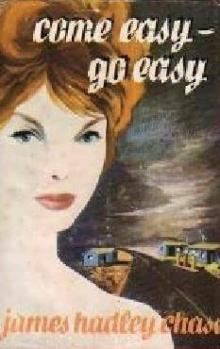 Come Easy, Go Easy
Come Easy, Go Easy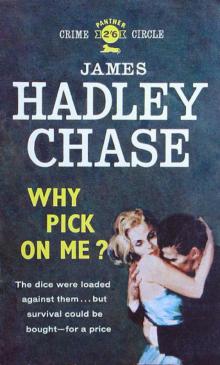 Why Pick On ME?
Why Pick On ME?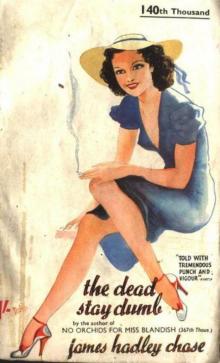 The Dead Stay Dumb
The Dead Stay Dumb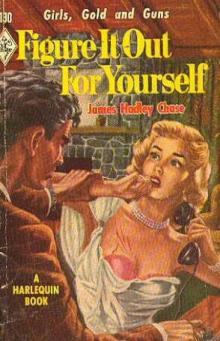 Figure it Out For Yourself
Figure it Out For Yourself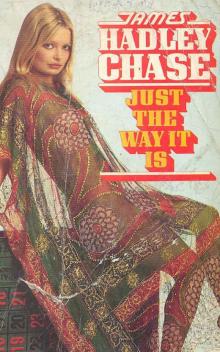 1944 - Just the Way It Is
1944 - Just the Way It Is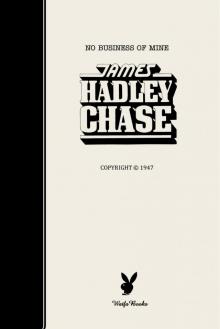 No Business Of Mine
No Business Of Mine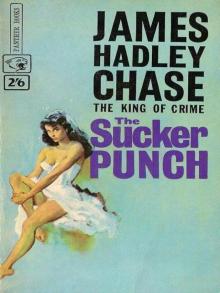 1953 - The Sucker Punch
1953 - The Sucker Punch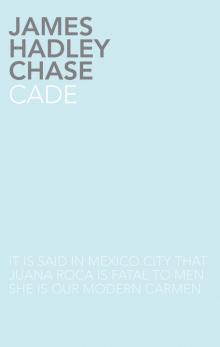 Cade
Cade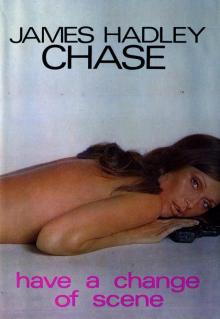 1973 - Have a Change of Scene
1973 - Have a Change of Scene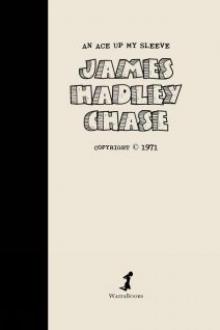 An Ace up my Sleeve
An Ace up my Sleeve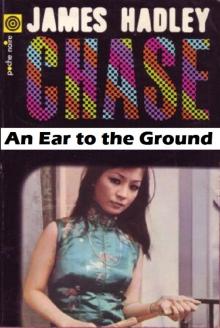 1968-An Ear to the Ground
1968-An Ear to the Ground 1950 - Figure it Out for Yourself
1950 - Figure it Out for Yourself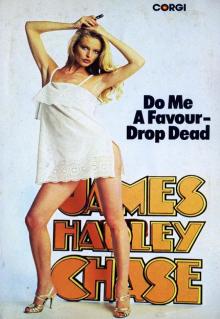 1976 - Do Me a Favour Drop Dead
1976 - Do Me a Favour Drop Dead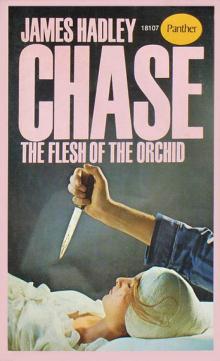 The Flesh of The Orchid
The Flesh of The Orchid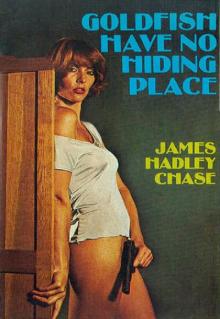 1974 - Goldfish Have No Hiding Place
1974 - Goldfish Have No Hiding Place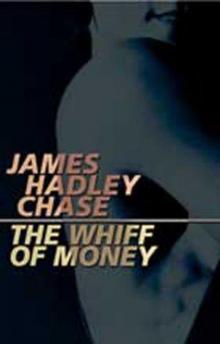 Whiff of Money
Whiff of Money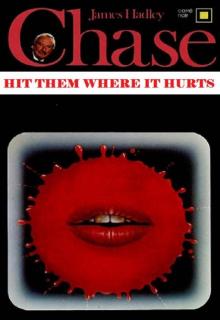 1984 - Hit Them Where it Hurts
1984 - Hit Them Where it Hurts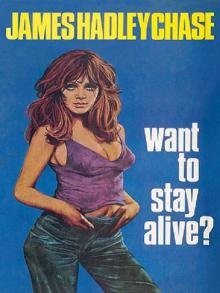 1971 - Want to Stay Alive
1971 - Want to Stay Alive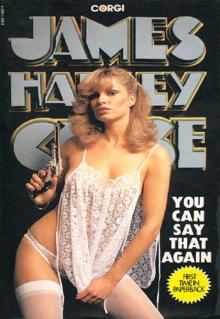 1980 - You Can Say That Again
1980 - You Can Say That Again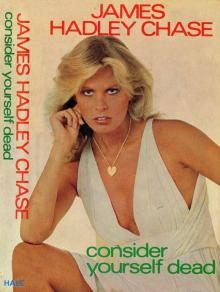 1978 - Consider Yourself Dead
1978 - Consider Yourself Dead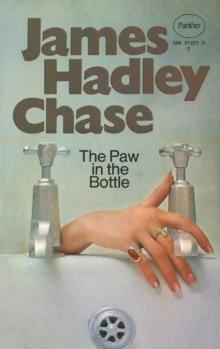 The Paw in The Bottle
The Paw in The Bottle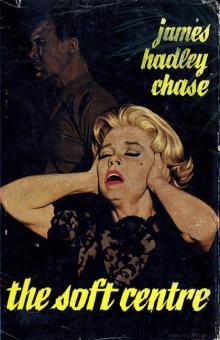 Soft Centre
Soft Centre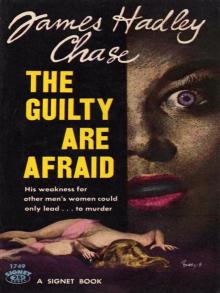 The Guilty Are Afraid
The Guilty Are Afraid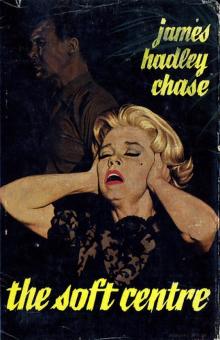 The Soft Centre
The Soft Centre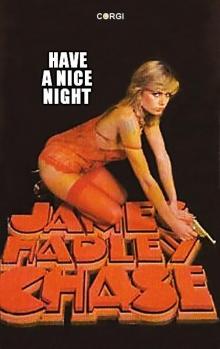 Have a Nice Night
Have a Nice Night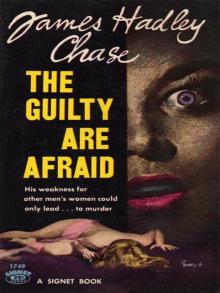 1957 - The Guilty Are Afraid
1957 - The Guilty Are Afraid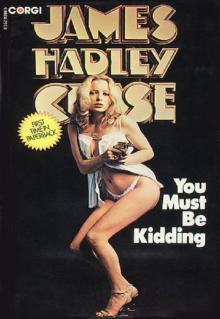 1979 - You Must Be Kidding
1979 - You Must Be Kidding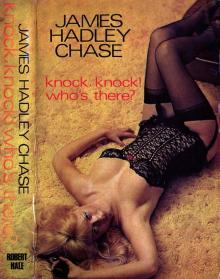 Knock, Knock! Who's There?
Knock, Knock! Who's There?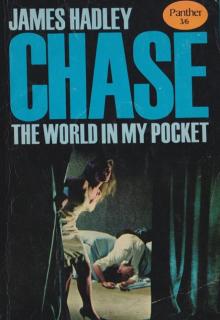 1958 - The World in My Pocket
1958 - The World in My Pocket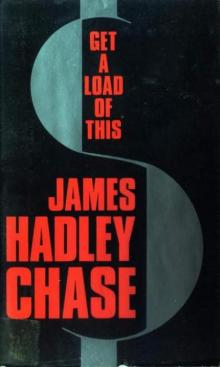 Get a Load of This
Get a Load of This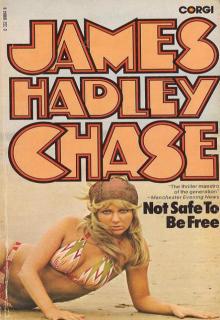 1958 - Not Safe to be Free
1958 - Not Safe to be Free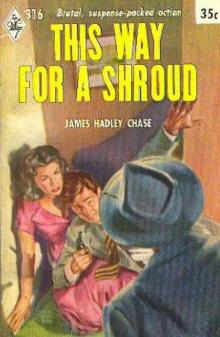 This Way for a Shroud
This Way for a Shroud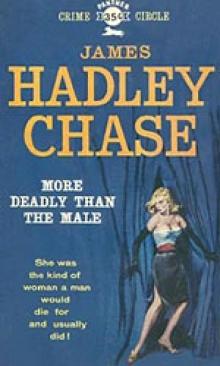 More Deadly Than the Male
More Deadly Than the Male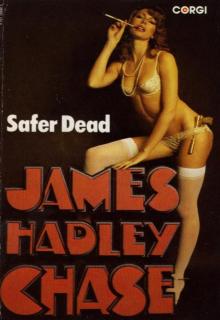 Safer Dead
Safer Dead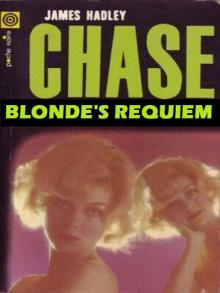 1945 - Blonde's Requiem
1945 - Blonde's Requiem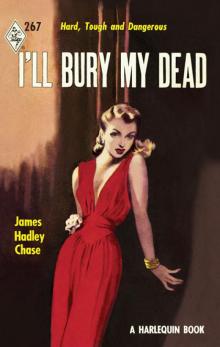 I'll Bury My Dead
I'll Bury My Dead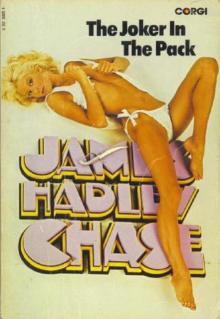 1975 - The Joker in the Pack
1975 - The Joker in the Pack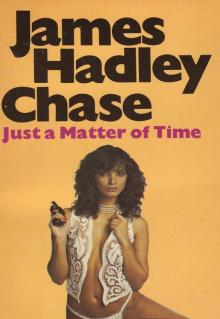 1972 - Just a Matter of Time
1972 - Just a Matter of Time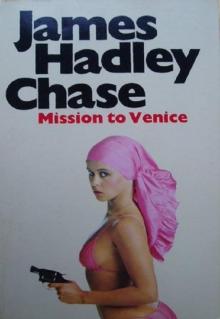 1954 - Mission to Venice
1954 - Mission to Venice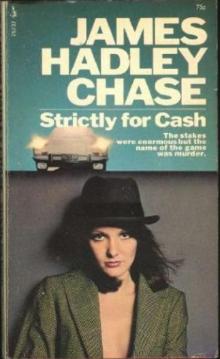 Strictly for Cash
Strictly for Cash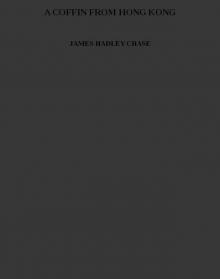 A COFFIN FROM HONG KONG
A COFFIN FROM HONG KONG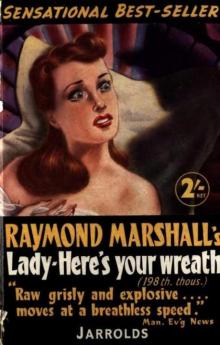 Lady—Here's Your Wreath
Lady—Here's Your Wreath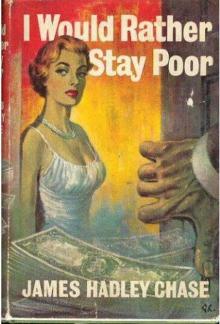 I Would Rather Stay Poor
I Would Rather Stay Poor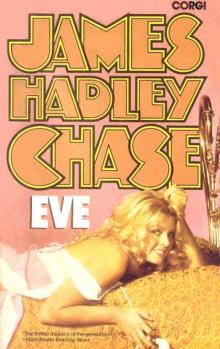 Eve
Eve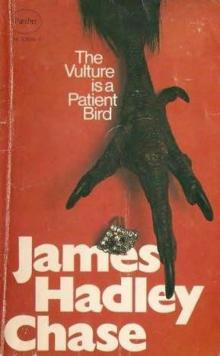 Vulture Is a Patient Bird
Vulture Is a Patient Bird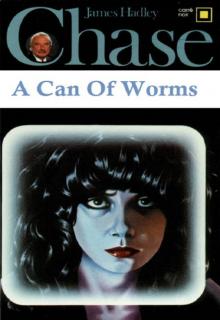 1979 - A Can of Worms
1979 - A Can of Worms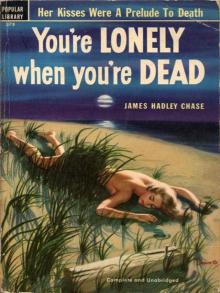 1949 - You're Lonely When You Dead
1949 - You're Lonely When You Dead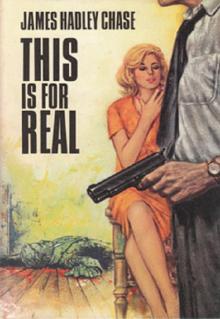 1965 - This is for Real
1965 - This is for Real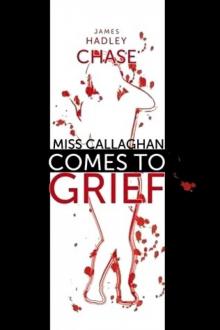 (1941) Miss Callaghan Comes To Grief
(1941) Miss Callaghan Comes To Grief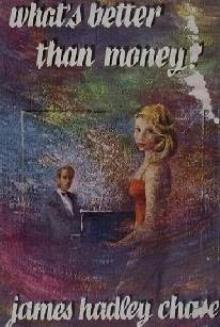 What`s Better Than Money
What`s Better Than Money This is For Real
This is For Real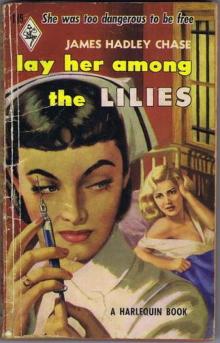 Lay Her Among the Lilies vm-2
Lay Her Among the Lilies vm-2 Knock Knock Whos There
Knock Knock Whos There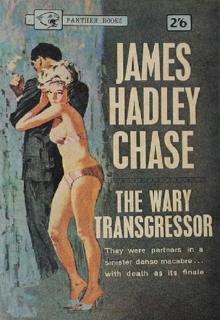 1952 - The Wary Transgressor
1952 - The Wary Transgressor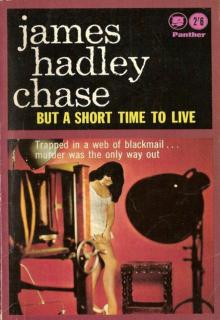 1951 - But a Short Time to Live
1951 - But a Short Time to Live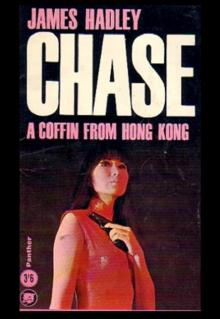 1962 - A Coffin From Hong Kong
1962 - A Coffin From Hong Kong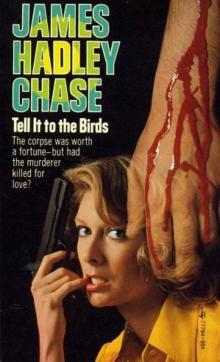 Tell It to the Birds
Tell It to the Birds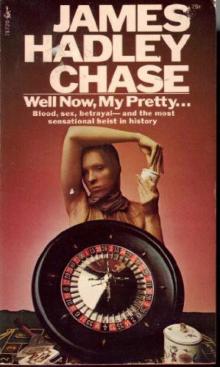 Well Now, My Pretty…
Well Now, My Pretty…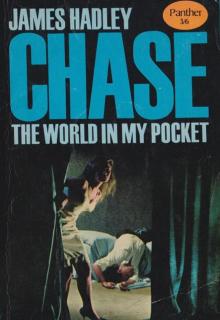 The World in My Pocket
The World in My Pocket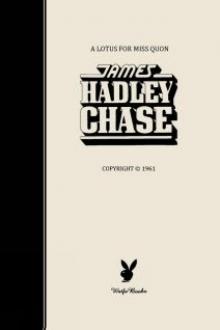 A Lotus for Miss Quon
A Lotus for Miss Quon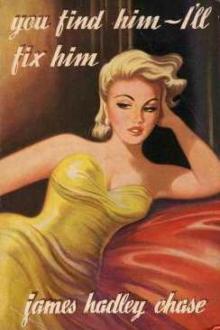 You Find Him, I'll Fix Him
You Find Him, I'll Fix Him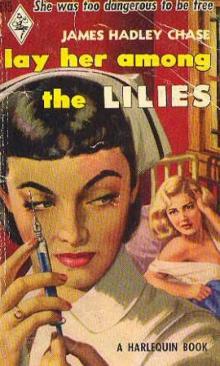 Lay Her Among The Lilies
Lay Her Among The Lilies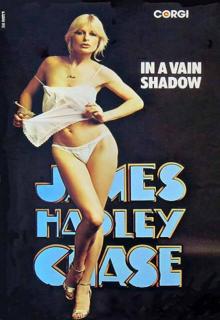 1951 - In a Vain Shadow
1951 - In a Vain Shadow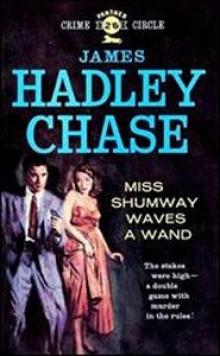 Miss Shumway Waves a Wand
Miss Shumway Waves a Wand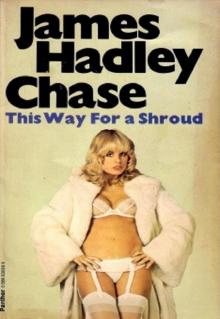 1953 - This Way for a Shroud
1953 - This Way for a Shroud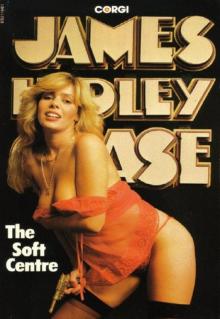 1964 - The Soft Centre
1964 - The Soft Centre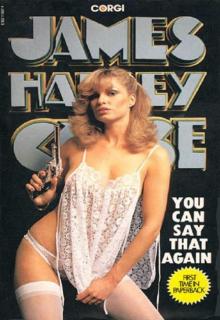 You Can Say That Again
You Can Say That Again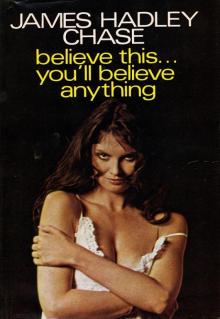 1975 - Believe This You'll Believe Anything
1975 - Believe This You'll Believe Anything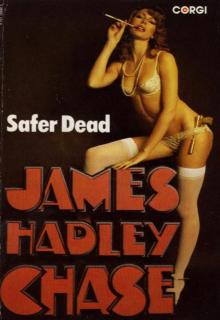 1954 - Safer Dead
1954 - Safer Dead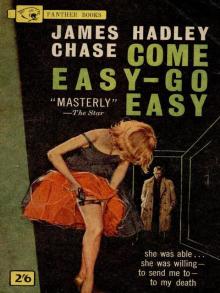 1960 - Come Easy, Go Easy
1960 - Come Easy, Go Easy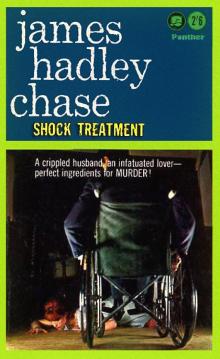 Shock Treatment
Shock Treatment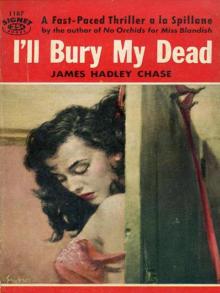 1953 - I'll Bury My Dead
1953 - I'll Bury My Dead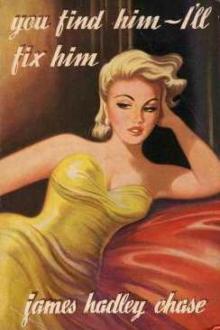 You Find Him – I'll Fix Him
You Find Him – I'll Fix Him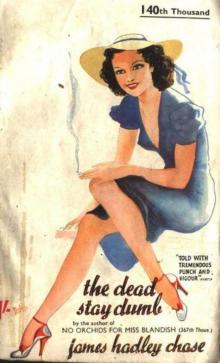 Dead Stay Dumb
Dead Stay Dumb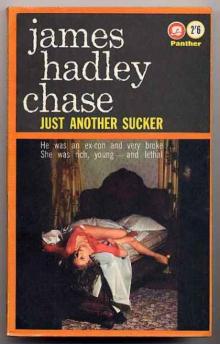 Just Another Sucker
Just Another Sucker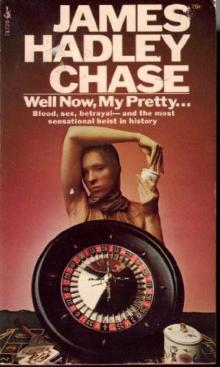 Well Now My Pretty
Well Now My Pretty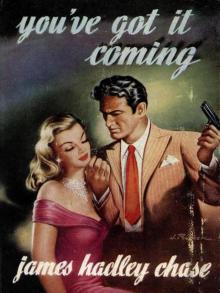 You've Got It Coming
You've Got It Coming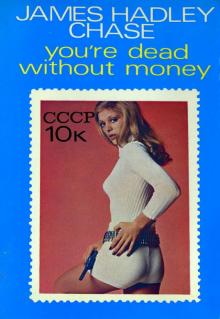 1972 - You're Dead Without Money
1972 - You're Dead Without Money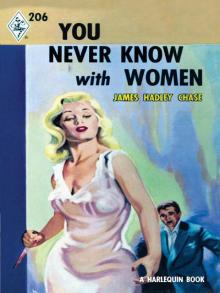 1955 - You Never Know With Women
1955 - You Never Know With Women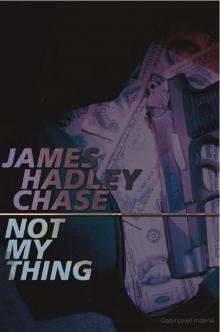 Not My Thing
Not My Thing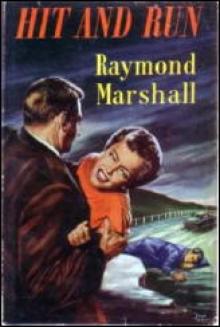 Hit and Run
Hit and Run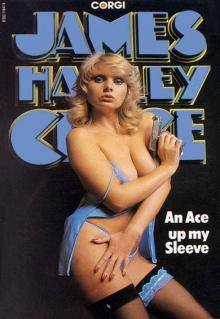 1971 - An Ace Up My Sleeve
1971 - An Ace Up My Sleeve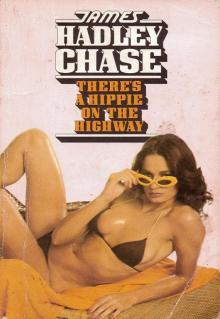 1970 - There's a Hippie on the Highway
1970 - There's a Hippie on the Highway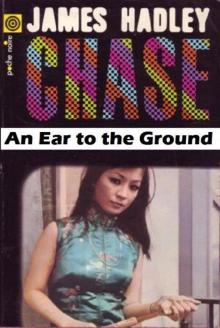 1968 - An Ear to the Ground
1968 - An Ear to the Ground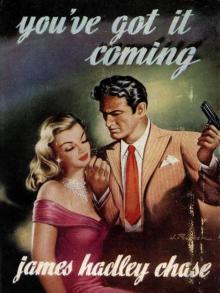 1955 - You've Got It Coming
1955 - You've Got It Coming 1963 - One Bright Summer Morning
1963 - One Bright Summer Morning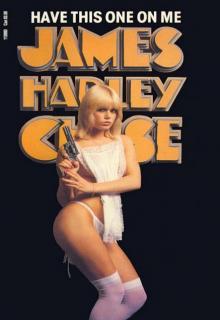 1967 - Have This One on Me
1967 - Have This One on Me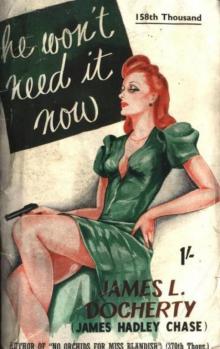 He Won't Need It Now
He Won't Need It Now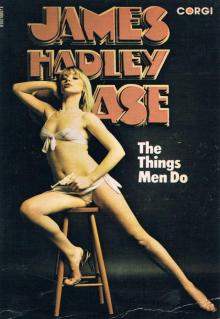 1953 - The Things Men Do
1953 - The Things Men Do Believed Violent
Believed Violent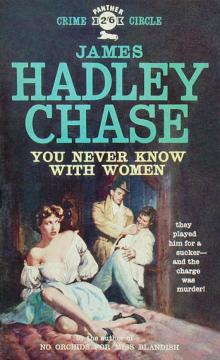 You Never Know With Women
You Never Know With Women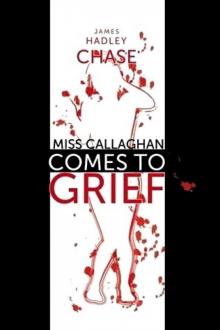 Miss Callaghan Comes to Grief
Miss Callaghan Comes to Grief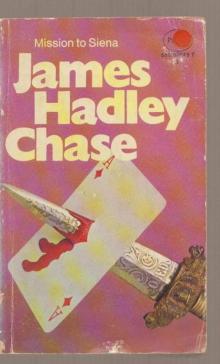 Mission to Siena
Mission to Siena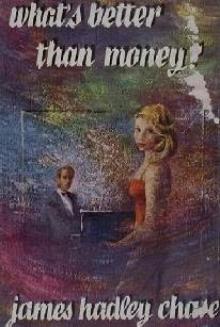 What's Better Than Money
What's Better Than Money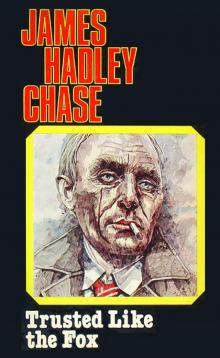 Trusted Like The Fox
Trusted Like The Fox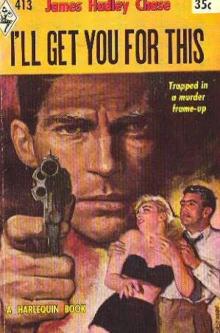 I'll Get You for This
I'll Get You for This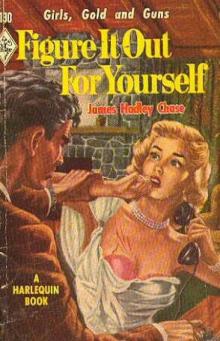 Figure It Out for Yourself vm-3
Figure It Out for Yourself vm-3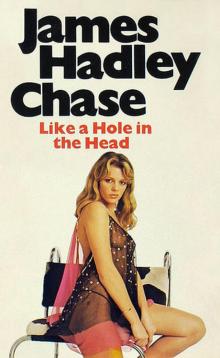 Like a Hole in the Head
Like a Hole in the Head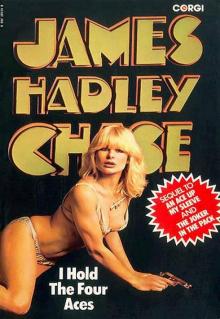 1977 - I Hold the Four Aces
1977 - I Hold the Four Aces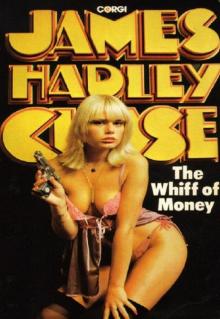 1969 - The Whiff of Money
1969 - The Whiff of Money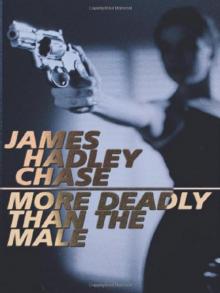 1946 - More Deadly than the Male
1946 - More Deadly than the Male 1956 - There's Always a Price Tag
1956 - There's Always a Price Tag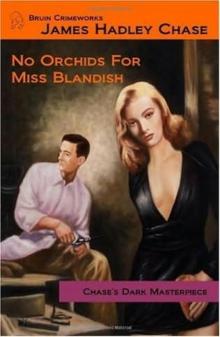 No Orchids for Miss Blandish
No Orchids for Miss Blandish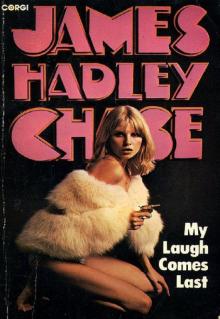 1977 - My Laugh Comes Last
1977 - My Laugh Comes Last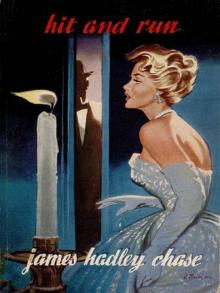 1958 - Hit and Run
1958 - Hit and Run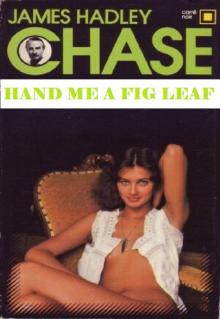 1981 - Hand Me a Fig Leaf
1981 - Hand Me a Fig Leaf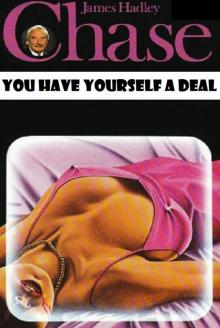 1966 - You Have Yourself a Deal
1966 - You Have Yourself a Deal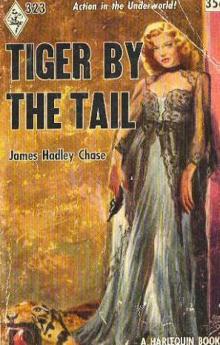 Tiger by the Tail
Tiger by the Tail